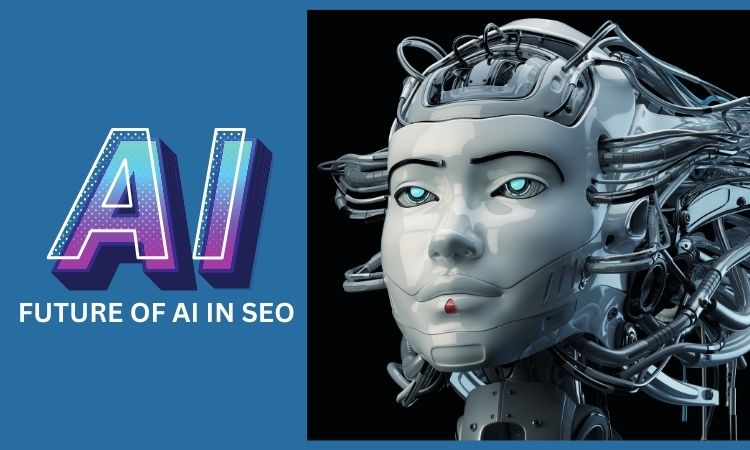In the ever-evolving landscape of digital marketing, staying ahead of search engine optimization (SEO) trends and algorithm updates is crucial for businesses seeking to maintain their online visibility. With search engines like Google frequently updating their algorithms, understanding how these changes affect search rankings has become increasingly complex. Enter artificial intelligence (AI)—a transformative technology that is reshaping how marketers predict SEO trends and adapt to algorithm updates. This blog explores the role of AI in this dynamic arena and its implications for businesses.

1. Understanding AI and Its Impact on SEO
AI refers to the simulation of human intelligence in machines that are programmed to think and learn like humans. In the context of SEO, AI can analyze vast amounts of data and generate insights that can help marketers make informed decisions.
- Data Analysis: AI excels at analyzing large datasets, allowing it to identify patterns and trends that may not be immediately apparent to human analysts. This capability can significantly enhance SEO strategies.
- Automation: AI tools can automate various SEO tasks, such as keyword research, content optimization, and performance tracking, saving time and increasing efficiency for marketers.
2. Predicting SEO Trends with AI
AI’s ability to analyze data and recognize patterns makes it an invaluable tool for predicting future SEO trends. Here are some ways AI contributes to trend forecasting:
a. Machine Learning Algorithms
Machine learning, a subset of AI, allows systems to learn from data without explicit programming. These algorithms can analyze past search behavior and outcomes to identify emerging trends.
- Behavior Analysis: By analyzing user search patterns, AI can help identify what types of content are gaining traction and predict which topics are likely to become popular in the near future.
- Trend Forecasting: AI can leverage historical data to forecast future changes in search behavior, enabling marketers to adapt their strategies proactively.
b. Natural Language Processing (NLP)
Natural language processing is a branch of AI focused on the interaction between computers and humans through natural language.
- Content Optimization: AI-powered NLP tools can analyze search queries to understand user intent, helping marketers create more relevant content that aligns with what users are searching for.
- Voice Search Adaptation: As voice search becomes more prevalent, AI can help businesses optimize their content for conversational queries, which often differ from traditional text-based searches.
3. Adapting to Algorithm Updates
Search engines continually refine their algorithms to provide users with the most relevant and high-quality results. Here’s how AI can help businesses adapt to these updates:
a. Real-Time Monitoring
AI tools can monitor changes in search engine algorithms and analyze their impact on website rankings in real time.
- Performance Tracking: AI can track fluctuations in keyword rankings, organic traffic, and user engagement metrics, providing insights into how algorithm updates affect a website’s performance.
- Immediate Alerts: With AI monitoring, marketers can receive instant alerts about significant changes, allowing them to respond quickly to potential ranking drops.
b. Competitive Analysis
AI can assist in analyzing competitors’ SEO strategies, providing insights into how they are adapting to algorithm updates.
- Competitor Insights: By evaluating competitor performance before and after algorithm changes, AI tools can help marketers identify effective strategies and potential areas for improvement.
- Benchmarking: AI can establish benchmarks based on competitor performance, allowing businesses to set realistic goals and measure their progress against industry standards.
4. Creating Adaptive SEO Strategies
With AI’s insights, businesses can develop adaptive SEO strategies that are responsive to changes in trends and algorithms.
a. Content Strategy Optimization
AI can inform content strategies by analyzing what types of content perform best in the current SEO landscape.
- Content Gaps: AI tools can identify content gaps by analyzing competitor sites, enabling marketers to create unique and valuable content that meets user needs.
- Topic Clusters: AI can help organize content into topic clusters, improving internal linking and enhancing the overall relevance of a site.
b. User Experience Enhancement
AI can also play a significant role in improving user experience (UX), which is increasingly becoming a ranking factor in SEO.
- Personalization: AI algorithms can analyze user behavior to deliver personalized content recommendations, improving engagement and dwell time on a website.
- Chatbots: AI-driven chatbots can enhance customer interaction on websites, providing instant support and guiding users to relevant content, which can positively impact SEO.
5. The Future of AI in SEO
As AI technology continues to advance, its role in predicting SEO trends and adapting to algorithm updates will become even more prominent.
- Enhanced Predictive Analytics: Future AI tools will likely offer even more sophisticated predictive analytics capabilities, allowing marketers to anticipate changes in user behavior and algorithm updates with greater accuracy.
- Greater Integration: AI is expected to become more integrated into SEO tools, providing marketers with comprehensive solutions that combine data analysis, content optimization, and performance tracking.
Conclusion
AI is revolutionizing the way businesses approach SEO, providing valuable insights and tools to predict trends and adapt to algorithm updates. By leveraging AI’s capabilities, marketers can make data-driven decisions, enhance their content strategies, and improve user experiences, ultimately driving better results for their SEO efforts.


No responses yet